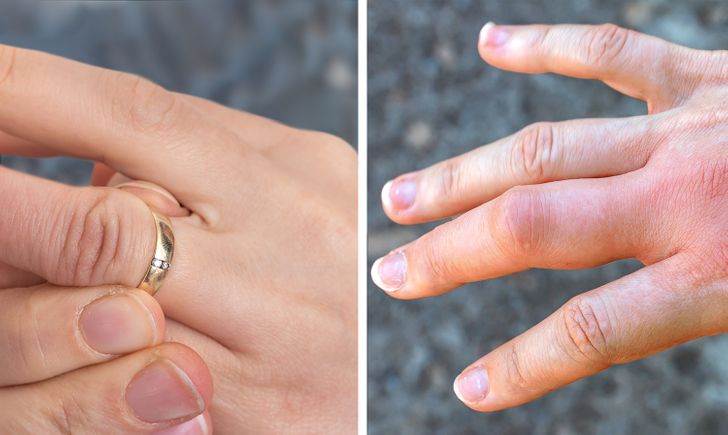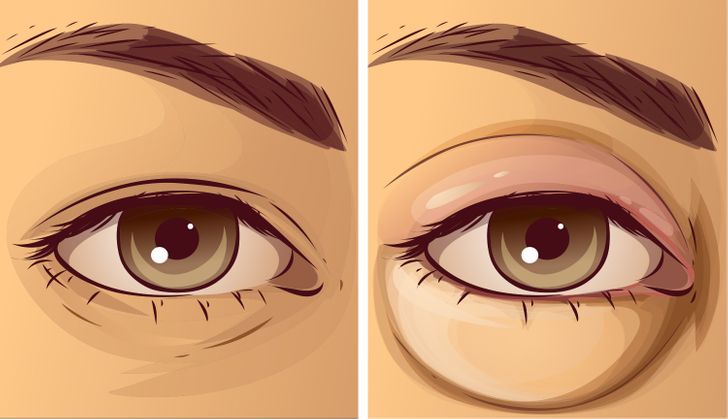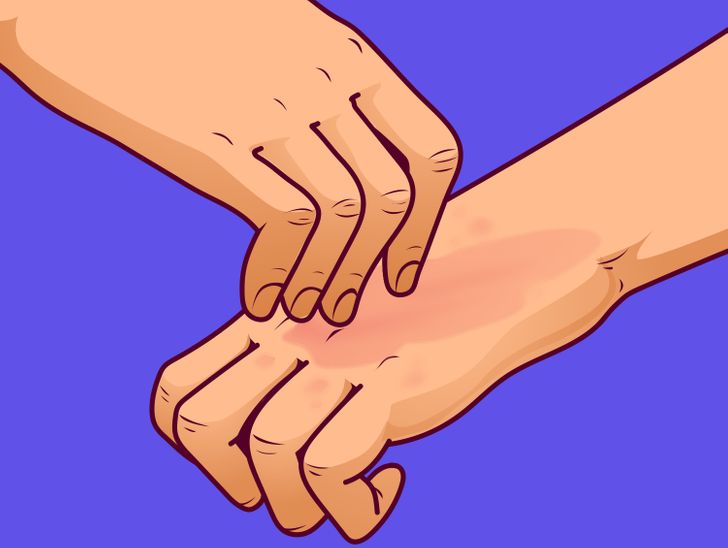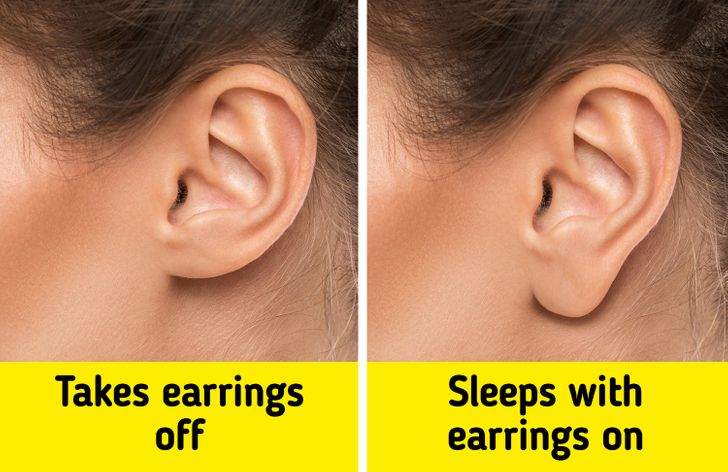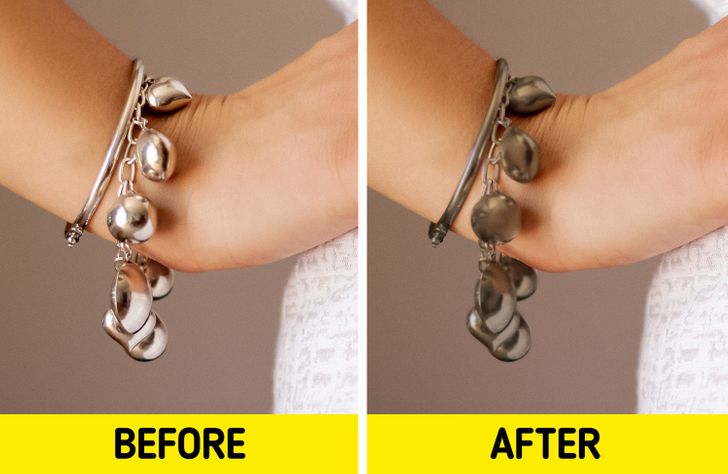But I can't, I will feel bad if I remove my ring
Why You Should Always Take Your Jewelry Off Before Going to Bed
Many of us have a special piece of jewelry that is so close to our hearts we never want to take it off. And sometimes, we’re just too exhausted to remove all those rings and bracelets before we hit the hay. Although many of us are guilty of falling asleep with our jewelry on, there are some pretty serious cons to wearing it while getting our nightly rest.
We at Bright Side can totally relate to this choice many of us face before going to bed. So we decided to find out why sleeping with your jewelry on may not be safe for your health nor your gems.
1. It will be hard to take your ring off in the morning.
You may have noticed that your hands and fingers appear slightly larger in the morning. This happens because, when we lie still at night, fluids build up inside the tissues and cause us to wake up with slightly swollen hands. If you fall asleep wearing a ring, it will be much more difficult to remove it in the morning. To take your ring off the swollen fingers, you’ll need to use liquid soap or vegetable oil to help it slide off, or even put your hand in icy water to reduce the swelling.
2. It may disrupt your sleep.
Sleeping with a necklace on may put your night rest at risk, especially if you’re a big tosser and turner between the sheets. The chains can get tangled in your hair or wrapped around your neck, disturbing your sleep. If your favorite necklace has pendants or charms, they can poke you in your sleep, waking you up. If you can’t imagine parting with your sentimental piece of jewelry at night, opt for designs that won’t interfere with your sleep, such as necklaces made of soft and flexible materials.
3. It may irritate your skin.
Some materials that are used to make jewelry, such as nickel, may cause allergic reactions and make your skin itchy and red. And although gold and silver may sound like a safe option, they often contain other metals as well. If you have sensitive and allergy-prone skin, make sure your jewels are made of 14k gold or higher. The higher karat means the gold is purer and less likely to cause a reaction.
4. Your earlobes may become saggy.
While sleeping with your studs on may cause discomfort, hitting the hay wearing large and heavy earrings may age and elongate your earlobes. Earlobes lose elasticity over the years, and if you don’t give them some time to rest and breathe at night, they may droop and sag. Wearing your earrings at night can also cause them to smell bad. When sebum secreted by your skin gets mixed with dead skin cells and bacteria, it can make your piercings pretty smelly.
5. It may cause bacterial build-up.
If you don’t take off your jewelry to clean it properly, your favorite pieces may become a breeding ground for dirt and bacteria. Rings that come in close contact with the skin serve as moisture traps, creating a perfect environment for bacteria to grow.
6. It’s not good for your jewelry.
Although many people have the habit of sleeping with their engagement ring or a wedding band on, it’s better to remove them before going to bed to keep them in their best shape. If you’re a restless sleeper, you can hit your bling on your bed or nightstand and crack it. When you roll over in your sleep, the prongs can catch on fabrics, which can wear them out. Sleeping with your jewelry on can also cause it to tarnish, as we sweat in our sleep, and the sweat that ends up on the jewels can dull their shine.
Do you wear your jewelry when you sleep? What else would you add to this list?
Comments
For number 4... They are way off. Genetics determine the shape of your lobes in terms of if they are 'droopy' or not. The hole shape is what is affected by the weight of the earrings, not if you sleep with them or not.
As a person who wears earrings for 24/7:
Long ears for longevity!
Related Reads
10 People With Extraordinary Physical Features We Can’t Believe Actually Exist

9 Unexpected Things That Show a Marriage Won’t Last Long
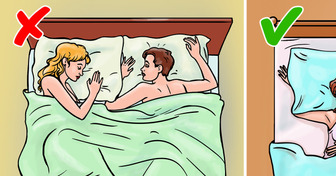
20 Skillful Women Who Can Do True Wonders With Their Makeup Kit

20 Honest Illustrations That Will Make Every Girl Out There Think, “Is Anyone Watching Me?”

15+ Situations When Reality Exceeded All Possible Expectations

16 People Who Dared to Go for a Big Change and Now Can’t Take Their Eyes Off the Mirror
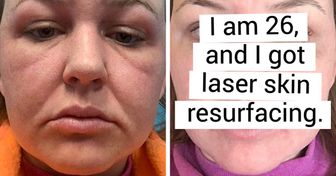
I Banned My MIL From Our House After Overhearing What She Told My Husband

My Sister Lives in Luxury While I'm Struggling to Survive — She Refuses to Help

14 People Shared the Turns Their Life Took After They Adopted a Kid

I’m Refusing to Allow My Daughter’s Biological Mom to Meet Her

I Trusted My Ex’s New Partner With Our Son, That Was a Mistake

15 Times People Received Such Great Service They Had to Share Their Experience With the World

